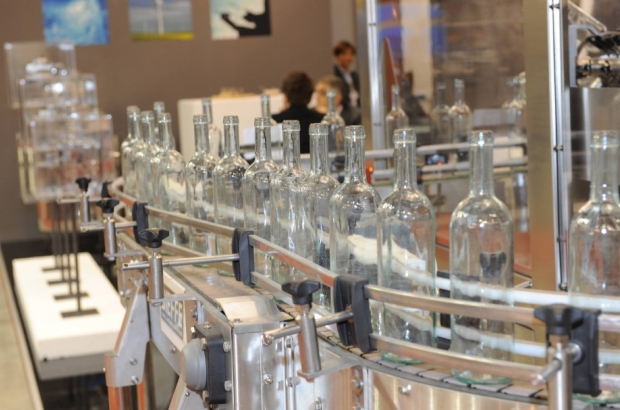- Daily & Weekly newsletters
- Buy & download The Bulletin
- Comment on our articles
No more bottlenecks: Cape Decision
The consulting firm of Jean Schrurs and Dominique Huret is based in Braine l’Alleud, just outside Brussels, but its name refers to a place far off in Alaska. Cape Decision is the tip of Kuiu island, where a lighthouse has been providing guidance to passing ships since 1932. “Just like this beacon on the coast, we suggest the right decisions to entrepreneurs in the beverage and packaging sectors, so they know the best route to follow,” explains operations manager Schrurs.
Cape Decision offers companies and institutions an array of independent advice. For example, they optimise technological systems to increase the efficiency and eco-friendliness of the production. But they also help enterprises find new market opportunities, recommend interesting collaborations, evaluate the feasibility of projects and assess entrepreneurs’ long-term business strategies. Through workshops and training, they share the specialised know-how that they’ve built up over several decades.
Mechanical engineer Schrurs’ first expertise in the business world came at the steel wire specialist Bekaert and global energy company Shell. At the beginning of the 1990s, he entered the drinks and packaging sector at the Coca-Cola Company. For a decade, he developed Coca-Cola’s activities in Europe and abroad, until he was appointed to lead the European manufacturing operations of packaging multinational Amcor. His last stint as an employee was at AB InBev, the largest brewer in the world, which he quit in 2005 to start his own consultancy. His partner, Huret, comes from a family active in the water and soft drinks industry, but developed an international career as journalist and producer at the American news channel CNN, the BBC World Service and the European Commission. This varied expertise formed an ideal basis for her role as communication specialist at Cape Decision, where she is in charge of the company’s commercial and administrative aspects. The two also regularly employ specialists in fields such as hydrogeology and financial planning.
The firm’s first assignment came from a company Schrurs knew well: Coca-Cola. Since then, Cape Decision has coordinated more than 45 projects all over the world. A major part of its work focuses on food quality and 80 percent of project activity takes place outside Belgium, with a focus on Asia. Their clients include businesses, governments, development agencies and international organisations such as the UN.
 A clear example of Cape Decision’s global scope is a project from last year, when a packaging multinational asked the team to assess the quality systems of plants in three very different countries: Japan, China and Kenya. “You always have to adapt your solutions to the unique context,” says Schrurs. “There is not one magic way of removing the bottlenecks in a plant’s production.”
A clear example of Cape Decision’s global scope is a project from last year, when a packaging multinational asked the team to assess the quality systems of plants in three very different countries: Japan, China and Kenya. “You always have to adapt your solutions to the unique context,” says Schrurs. “There is not one magic way of removing the bottlenecks in a plant’s production.”
In Mongolia, the consultants spent a year and a half coaching Vitsamo, a local producer of fruit juice. In a country where natural vitamin-rich food is rare because of the harsh climate, there is a large demand for fruit juice. But the transport of the juice concentrates from the Netherlands and the competition from multinationals pose a lot of challenges.
Cape Decision’s strategic and commercial advice helped to double Vitsamo’s production volume and increase the enterprise’s efficiency. “Our priority was to make sure they produce what they can sell, not sell what they can produce,” says Schrurs.
The consultants are no strangers to demanding circumstances. In 2010, they assisted a rum producer in Haiti during the move of a plant to a temporary location after an earthquake had devastated the region. The assignment was an initiative of the Walloon government and the Inter-American Development Bank. Development banks are regular clients; the pair have also carried out several projects for the European Bank for Reconstruction and Development.
Another high-profile customer is the UN, for whom Cape Decision assessed the working methods at water plants in Burkina Faso and Mali, in West Africa. The main evolution in the beverage and packaging sectors is the growing attention to eco-friendliness. “We have been aware of green innovations from the start, but sustainability is now almost a standard concern,” explains Huret. For example, bottles are gradually becoming lighter and the design simpler, to reduce the impact on the environment. Recycling is a hot issue and, fortunately for Cape Decision, Belgium has a good reputation as a recycling nation.
Companies are also increasingly interested in best practices when it comes to water usage. Two years ago, Cape Decision carried out a complex project for the Indian Ocean fishing industry. In countries such as Mauritius and the Seychelles, the tourism and the fishing industries are the most important economic sectors, and they sometimes have conflicting needs. The job of the consultants was to update the eco-friendly operations of the fish canning plants, including optimising the recycling of the water so natural resources are protected.
This article first appeared in WAB Magazine




















